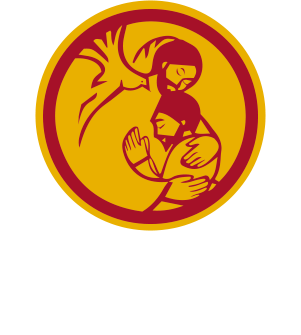Safeguarding
Definition of Safeguarding
“Safeguarding and promoting the welfare of children is defined for the purposes of this guidance as: protecting children from maltreatment; preventing impairment of children’s mental and physical health or development; ensuring that children grow up in circumstances consistent with the provision of safe and effective care; and taking action to enable all children to have the best outcomes.“
KCSIE
Holy Trinity's Commitment to Safeguarding and Child Protection
At Holy Trinity's Catholic Primary School we are committed to safeguarding children and young people and we expect everyone who works in our school to share this commitment.
Adults in our school take all welfare concerns seriously and encourage children and young people to talk to us about anything that may worry them.
Safeguarding Contacts in School
Designated Safeguarding Leader – Sarah Lester (Maternity leave)
Designated Safeguarding Leader- Kathleen Hinton Interim Head Teacher
Deputy Designated Safeguarding Leaders – Claire Beech and Vanessa Griffiths
Attendance and Welfare Officer – Vanessa Griffiths
Data Protection Officer – Sarah Lester
Parent Contact Information
In response to KCSIE, we have a duty to request details of both parents of a child, even if they do not reside together. Please work with us to maintain the accuracy of this information as it is in place to safeguard your child.
Please make telephone or face to face contact with us in cases where a parent does not have legal access to communication regarding their child.
Communication with Parents
Our school will always discuss concerns with parents/carers and consent for any referrals will be sought unless to do so would:
- Place the child at risk of significant harm or further risk of significant harm.
- Place a vulnerable adult at risk of harm.
- Compromise any enquiries that need to be undertaken by children’s social care or the police.
Our school will endeavour to ensure that parents have an understanding of the responsibilities placed on the school and staff for safeguarding children.
In the best interests of safeguarding children there may be occasions when Holy Trinity has to consult with other agencies without a parent or carer’s prior knowledge. Our first concern and responsibility is the child’s welfare and we have a duty to protect children first and always. Such consultation may result in a formal referral which could prompt visits from social care and/or the police. We fully understand that this can be a very distressing set of circumstances. Our school will follow the procedures required by Wolverhampton Safeguarding Together.
Curriculum
Child safety issues and child protection will be addressed through the curriculum where appropriate, especially through PSHE, Computing and E-Safety, Citizenship, Relationships and Health Education (RHE) and British values. Here are some ideas for starting a conversation with your child about internet use: Have a conversation
We use a variety of resources and approaches to teach the children how to keep themselves safe, build their resilience and manage risks.
The curriculum, and in particular the personal, social and health education development strand of the curriculum, includes an emphasis on relationships (relationships and sex education), building confidence and resilience in pupils and in developing preventative strategies to ensure their own protection and that of others. Opportunities are provided for pupils to develop the skills and strategies they need to stay safe from abuse, including age appropriate discussions about healthy relationships, their bodies and being able to say no to requests that they do not want to carry out. Clear advice and guidance is built into the curriculum to ensure that pupils understand that there is a range of contacts they can turn to for advice and support and that they know where and how to report abuse.
Child Sexual Exploitation
Child Sexual Exploitation (CSE) is a form of sexual abuse which sees children/young people being manipulated or coerced into sexual activity for receiving ‘something’ such as; gifts, money, food, attention, somewhere to stay etc. Technology is very often used to groom victims. This may occur through social networking sites and mobile phones with internet access. CSE has gained a large amount of media attention over the last year as lots of services involved with children and young people have noticed a big rise in cases involving CSE.
Charities such as NSPCC and Barnardos have been campaigning to raise the profile of this form of child abuse.
Internet Safety
Children and young people spend lots of time on the internet. They may go online to research information for homework or to play games, chat with friends and make new ones. The internet holds a massive amount of useful information and can also be a really good way of learning about new things and keeping in contact with friends and family. It can also be a very dangerous place so it is important that children are protected and monitored when they are online.
CEOP (Child Exploitation and Online Protection) has lots of information about how to keep your children safe online and parental controls. The link to the website is below.
CEOP – Thinkuknow
Female Genital Mutilation (FGM)
In April 2014 every school in England received new safeguarding guidelines and detailed information on identifying and responding to Female Genital Mutilation. FGM is a procedure carried out on young girls between the ages of infancy and 15 years of age.
Female Genital Mutilation is classified as a form of Child Abuse in the UK. It therefore makes the procedure of it a serious Child Protection issue. It is illegal for anyone to perform FGM in the UK or to arrange for a child to be transported to another country for the procedure. The maximum sentence for carrying out FGM or helping it to take place is 14 years in prison.
There is lots of information and support available online for parents/carers concerned about this subject or if you know someone who is at risk:
- Contact the Police if you think that a girl or young woman is in danger of FGM and is still in the UK.
- Contact the Foreign and Commonwealth Office (020 7008 1500) if she’s already been taken abroad.
The NSPCC has detailed advice on how to spot the signs, symptoms and effects of FGM and provides support for people who are concerned about a child or who have been affected themselves. The link to the website is below.
Reporting a Concern of Abuse or Neglect
If you have concerns that a child you know is at risk of serious harm through Abuse or Neglect it is important that you report your worries to the correct agency.
- The link below will direct you to the City of Wolverhampton Council’s Social Service page, which tells you how to report a concern.
- Below is the link to the Wolverhampton Safeguarding Together. Wolverhampton Safeguarding Together (WST) is a statutory board which has been set up as part of the Every Child Matters government reforms. WST ensures that all organisations that work with children work together to keep children and young people safe from harm. WST undertakes this role through providing training, the development of policies and procedures and awareness raising.
Wolverhampton Safeguarding Together
Please view our Safeguarding Policy below.
Resources
Please view our Safeguarding Documents & Useful Links below:
ht safeguarding policy updated september 2023.pdf
ht child performers policy 2 .pdf
ht looked after children policy.pdf

